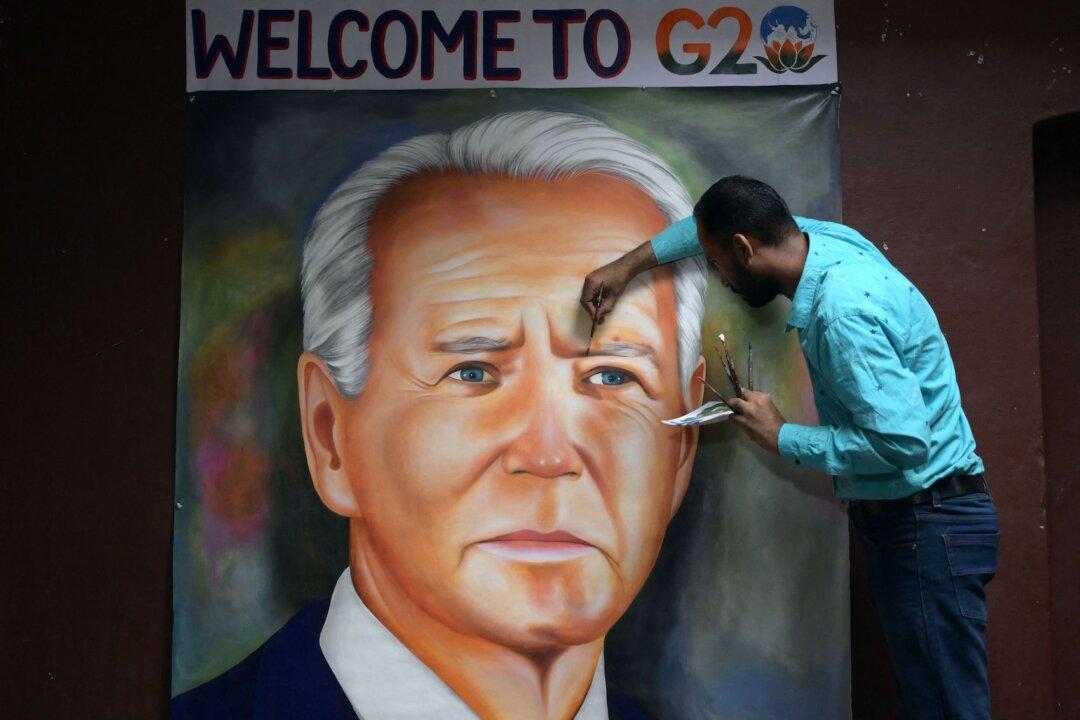WASHINGTON—President Joe Biden is scheduled to travel on Sept. 7 to India for the Group of 20 (G20) summit in New Delhi, where he plans to address the Chinese regime’s “coercive and unsustainable lending” practices, among other issues.
However, Chinese leader Xi Jinping won’t attend the two-day summit of leaders of the world’s richest countries, which begins on Sept. 9, Beijing stated on Sept. 4.





